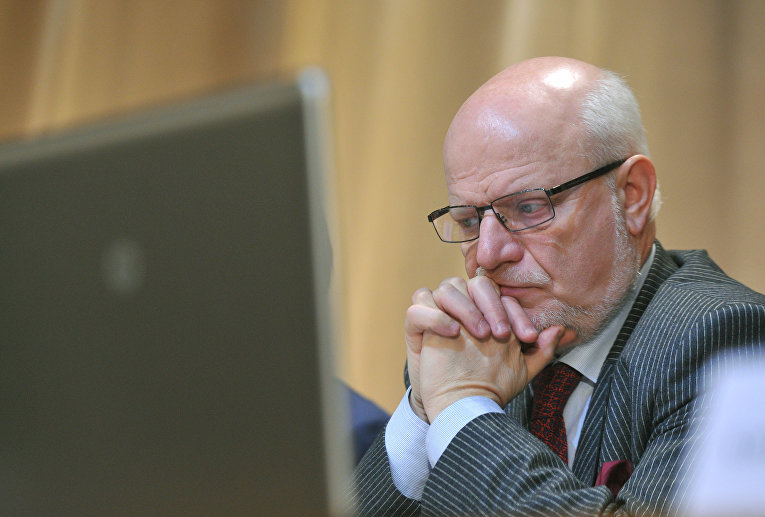MOSCOW, October 4 (RAPSI) – People convicted under Article 282 of Russia’s Criminal Code (incitement of hatred and enmity as well as violation of human dignity), which was partially decriminalized recently, would be able to ask for review of the sentences, Chairman of the Presidential Council for Human Rights Mikhail Fedotov told RAPSI on Thursday.
Fedotov reminded that Russian criminal procedural legislation provides an option to review a case upon discovery of new facts. As such, people convicted of extremism or their lawyers would be able to follow the same procedure.
On October 3, President Vladimir Putin submitted a bill mitigating punishment for extremism and incitement of hatred and enmity to the State Duma.
Under the bill, criminal punishment would be imposed for extremist acts in public, on the Internet or media committed repeatedly within a year. The first extremist violation is to be punished in accordance with the Code of Administrative Offences by fines of up to 500,000 rubles ($7,600) for companies; and fines of up to 20,000 rubles, community service for up to 100 hours or detention for up to 15 days for individuals.
Currently, criminal punishment is applied for the first extremist violation.
In September, the Supreme Court of Russia in its Plenum resolution explained that courts considering extremism cases should proceed from a level of public danger and hazard mode.
The Criminal Code of Russia attracts a criminal sentence for incitement of enmity but not for reposts on social networks. If a publication is extremist, malice of the repost must be proven, the Supreme Court’s Judge Vladimir Davydov said during a session of the Court’s Plenum.



